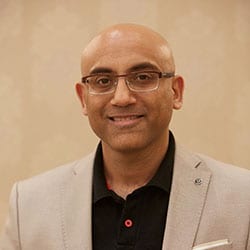
Cloud also enables people to work from anywhere. During the COVID pandemic, many organisations took advantage of that. However, many also found that a completely distributed workforce doesn’t work.
Iyengar noted, “You have technology that can let you work from anywhere, but in between, you need the human interactions for discussions, learning, collaboration and then sometimes decision-making as well.”
Transnational Localism

In addition, Zoho has introduced the concept of “Transnational Localism”, which it has delivered in India almost since it was founded. The model is enabled by technology. Iyengar explains, “The backbone of our collaboration and the virtual fabric of the company is the cloud technology that powers and helps people communicate across the world regardless of where you are, but these rural offices have become local communities where we’ve hired local talent, groomed them, nurtured them, built up these economies and the local economies and these rural areas prosper as a result of that.”
Iyengar explains the concept further, how Zoho have delivered it in India with great success and how it is looking to deliver it in Europe soon. He also shares that any organisation can adopt the principle and offers advice on how companies can enable it. Reaping the advantages that Zoho has already seen.
Zoho is a private company, and while it has not spent huge sums on marketing, its growth is impressive. It now has over 80 million users worldwide across its application suite. Iyengar explains the route to market Zoho takes.
Underpinning all of this is a culture that is almost unique in the tech world and one that Iyengar is proud of. He stated, “If I have to single out one thing that we would be proud of and that we would leave behind us as a legacy, it would be the culture. So tomorrow, let’s say we lose everything. We just have the culture left. That’s probably the greatest asset that we have to build it up again.”
To hear what else Iyengar said, listen to the podcast.
Where can I get it?
You can listen to the podcast by clicking on the player below. Alternatively, click on any of the podcast services below and go to the Enterprise Times podcast page.






























